Two years ago, Clement Guerrá was immersed in the film project of his life: The Condor & the Eagle, an award-winning environmental justice film documenting the fight of Indigenous people from Canada to the Amazon to defend their territories from petroleum, mining and other extractive industries. But for the French filmmaker, making the film was just the beginning; the next step was to use it as a tool to awaken consciousness and support impacted communities in an ongoing global impact campaign.
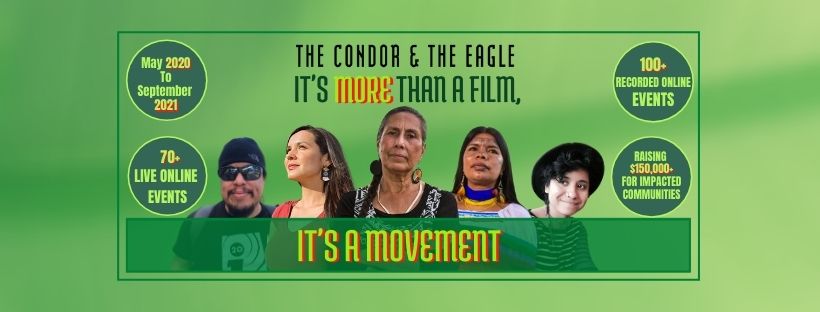
Now he’s taking the lessons learned to a whole new level with The Change Weavers, a new platform that gives tools, support and strategies to community leaders on the frontlines and creates a mutual support network to foster their success.
On March 10th, Clement drove for 11 hours from his hometown in Germany to the border of Poland and Ukraine to bring boxes of food and first aid that his community had gathered and give it to people who needed it at the border. At the same time he started documenting the situation of the war refugees and the people trying to leave the country.
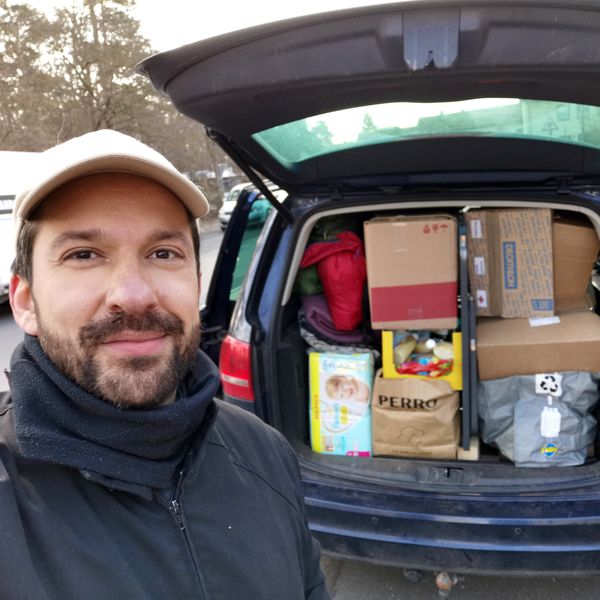
He quickly found three women from a Ukrainian community who are working to help their people, gave the boxes to them and even without speaking the same language, he managed to gather the first testimonials from three brave women working on the frontlines in that embattled country. You can watch the videos with Leysa, Adriana and Marina here.
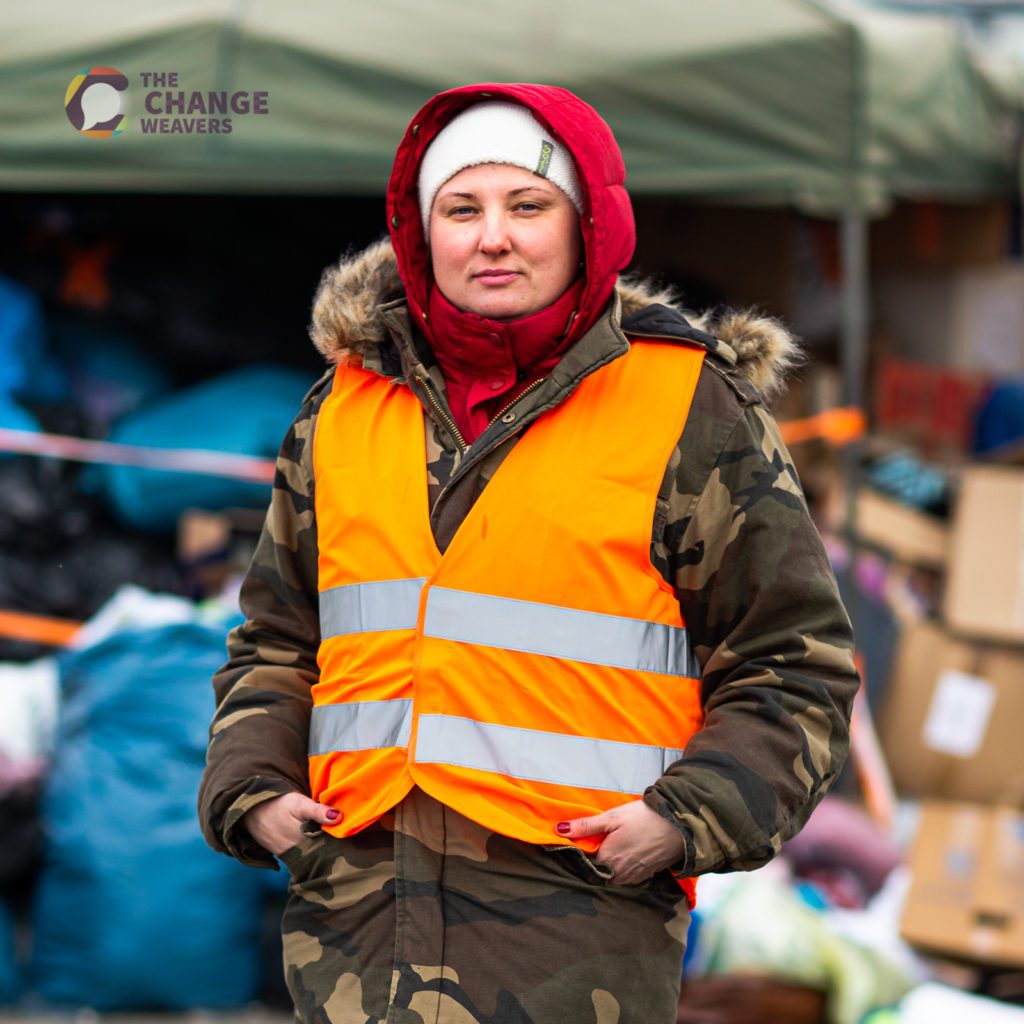
We caught up with Clement in the border town of Medyka, where he told us a bit of the context of this groundbreaking project.
Clement, can you tell us about The Change Weavers, and why you’re on the border with Ukraine right now? What are you doing there?
Clement: Well, it’s been a while since we last collaborated on organizing events, using at the time The Condor and The Eagle as an organizing tool. So already at the time, the idea was to produce media and use storytelling strategy not only as goals for themselves, but as tools to bring people together and hopefully create change and create impact.
Too often, white folks, most often men, speak on behalf of indigenous or impacted and vulnerable, marginalized communities, and we too rarely hear them speak for themselves, and by themselves. And [it’s rare] having spaces and platforms where they can actually report in their own words on the impacts and injustices they live and to develop the solutions they are implementing on the community level.
Well, I don’t want to be just another documentary filmmaker. I don’t want to be another white man speaking on behalf of impacted communities. So that’s why during our film The Condor & The Eagle, we didn’t use a voiceover. Indigenous women spoke for themselves and by themselves in the film, and we decided not to sell our film to distributors so that we could actually give back to communities what was given to us. So each event organizer has the opportunity to raise funds and help impacted communities featured in the film and others as well. So we are just taking this model and replicating it into our new project: The Change Weavers.
That sounds like a really empowering approach. So how does it work?
Clement: My job is to travel the world and meet those badass, most amazing emerging leaders coming from impacted communities and co-produce with them the media – photos, video, podcast, blogs – that they need in order to support their current initiative. They’re putting their priorities so that they can maybe use those pieces as a way to open a Patreon page for example, to fundraise for their own work. And as we are producing media wherever we go, covering many different issues about environmental justice issues, reproductive justice, racial justice, etcetera, we meet those amazing organizers that seem to fit what the Change Weavers are about. Those emerging leaders that want to use media in order to build bridges between geography and between movements that too often work in silos.
So what we are doing as we travel to each place is to create a global network of community organizers coming from impacted communities, using storytelling as a powerful organizing tool. So we are traveling the world this year and hopefully for the coming three to five years.
I see from your website that you’ve already done some work with war refugees. Can you talk about that and how it all started? And then, what’s next?
In November and December of 2021, we were in Greece and Turkey working on the refugee crisis. We worked with Iraqi people, Afghanis, Iranians, people in closed camps in Greece and Istanbul. Europe is closed to them, you know, but they fled the same kind of situation. And so there are different values we put on human beings. You know, it seems that one refugee is not worth the same as another refugee. So I think it’s extremely interesting to do the work and bring into perspective these two experiences. We will have what we saw in Greece and Istanbul, where Europe is seen as a fortress that we cannot enter; and on the other hand we are seeing here that Ukrainian refugees are welcomed with open arms. Is that because they look like us, that they are welcome? I don’t know. I’ve no idea, but we really want to go deeper into that.
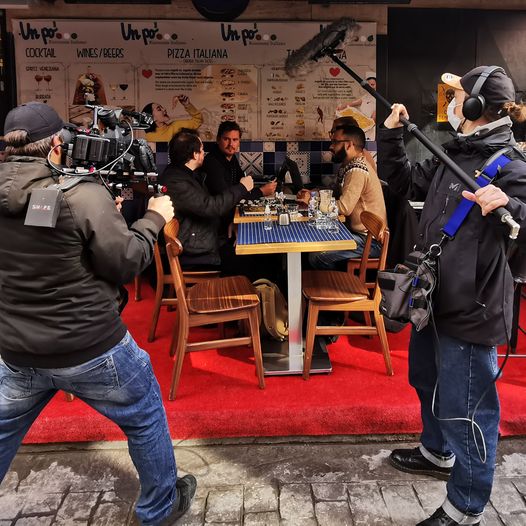
Now we are in Poland, at the border with Ukraine. In two weeks, we will be in Los Angeles for 24 days, working with former homeless people who are organizing the homeless.
That’s the concept. In November, we worked with refugees organizing refugees in the camps in Greece and Turkey. In August, we will be in Brazil, collaborating with alliances of indigenous people, taking a stand against Bolsonaro, who is working to burn down the Amazonian rainforest — we all know that — and in October, we will go to western Africa and work with organizations led by local women taking a stand against sex trafficking.
So everywhere we go, we are producing media pieces within the impacted communities. We are collaborating with amazing leaders and we are co-producing what we call educational toolkits, best practices, community organizing strategies. So everywhere we go, we are bringing local organizers on board into our organization, who are fully committed to bring change in their own communities, but understanding as well the importance of working globally, to link up the very local and the very global. And after one or two years, we will have a team of hopefully 20 to 40 Change Weavers, local organizers, who will cover a wide diversity of issues.
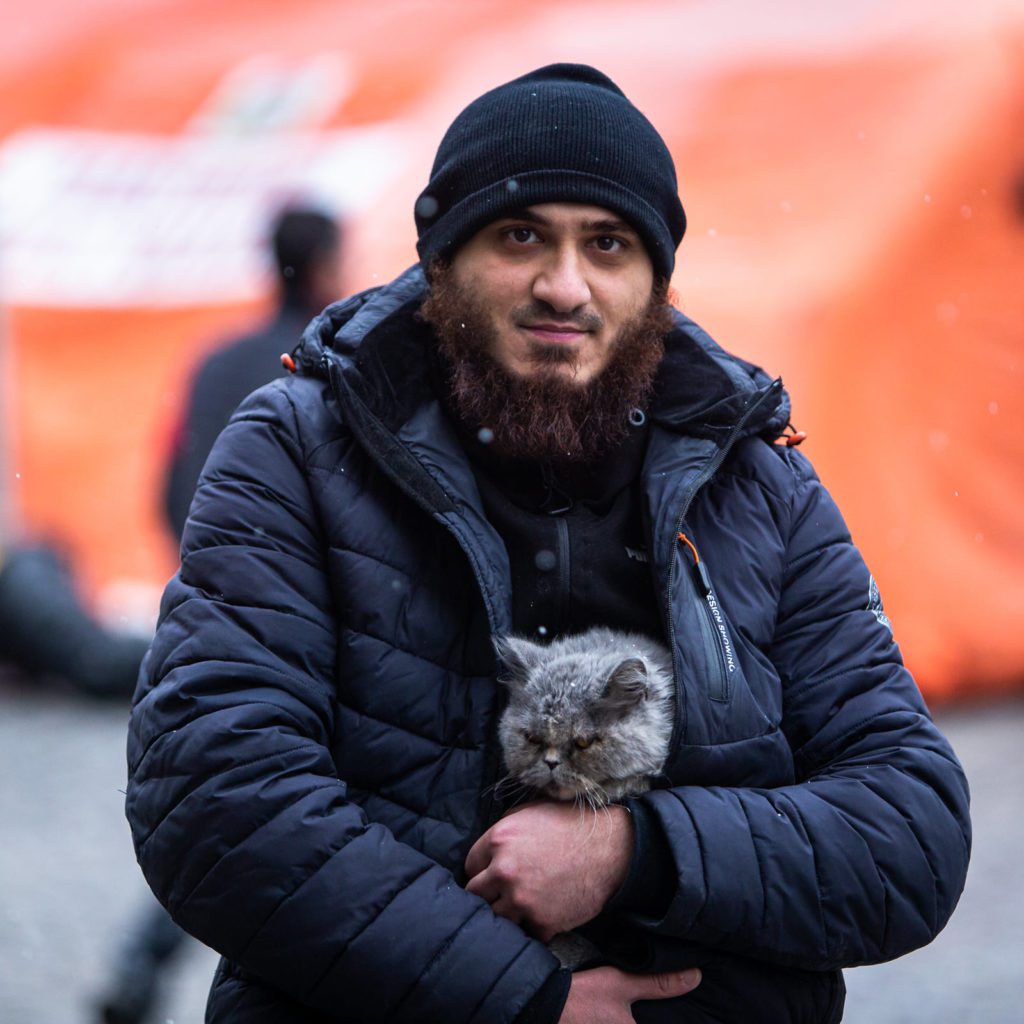
We are hoping to inspire those communities to do a better job at communicating, using media and storytelling tools as a way to amplify their voices and build collaboration with one another. So storytelling can be a way as well to build collaborative campaigns, to build bridges between movements and communities.
I really strongly believe that we need to pay more attention to what the people on the front line have to say, and the kind of actions they’re putting in place to actually address the problems.
OK, so what does your strategy look like as you launch the first phase of this project?
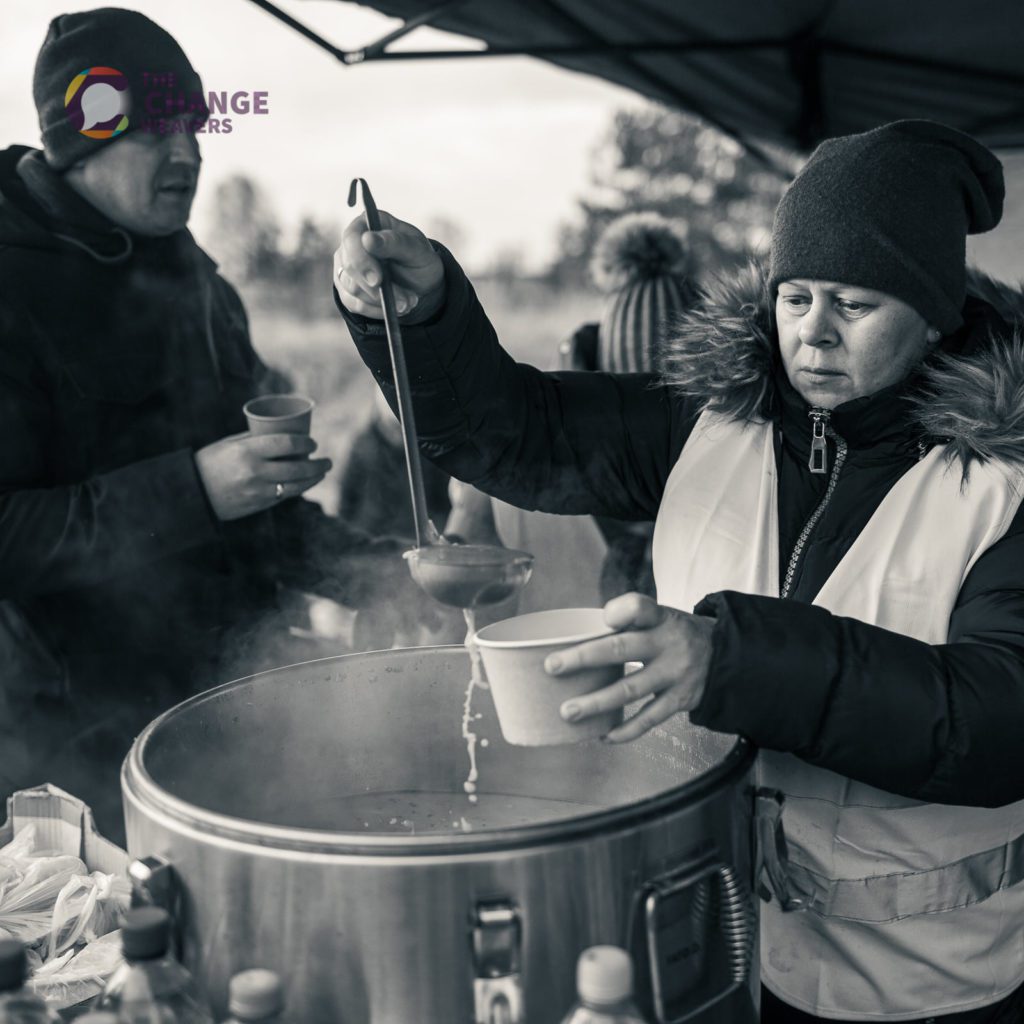
Clement: This first year is critical for us. By December we will have at least eight Change Weavers on board. The idea would be to actually raise bigger funds so that we can start paying our community organizers starting January 2023. And with those extra funds, hopefully we can expand dramatically the size of our Change Weavers. So if we are doing the things right this year, we can actually grow exponentially an international team of community organizers. But now we are like every independent project, struggling financially. So we have started a crowdfunding campaign, a participatory fundraising campaign on the Indiegogo platform, which started in early March and will last 60 days. And this is exciting for once to do a fundraising campaign because we will not be behind our desks and sending those emails saying “Oh, please give me money”, but we will actually grow a community of followers as we go. So as we travel, we are producing content, reaching out for partners, mobilizing the troops, mobilizing the community and asking for everybody to actually bring their stone to the edifice of the Change Weavers, which is our global home for global organizing.
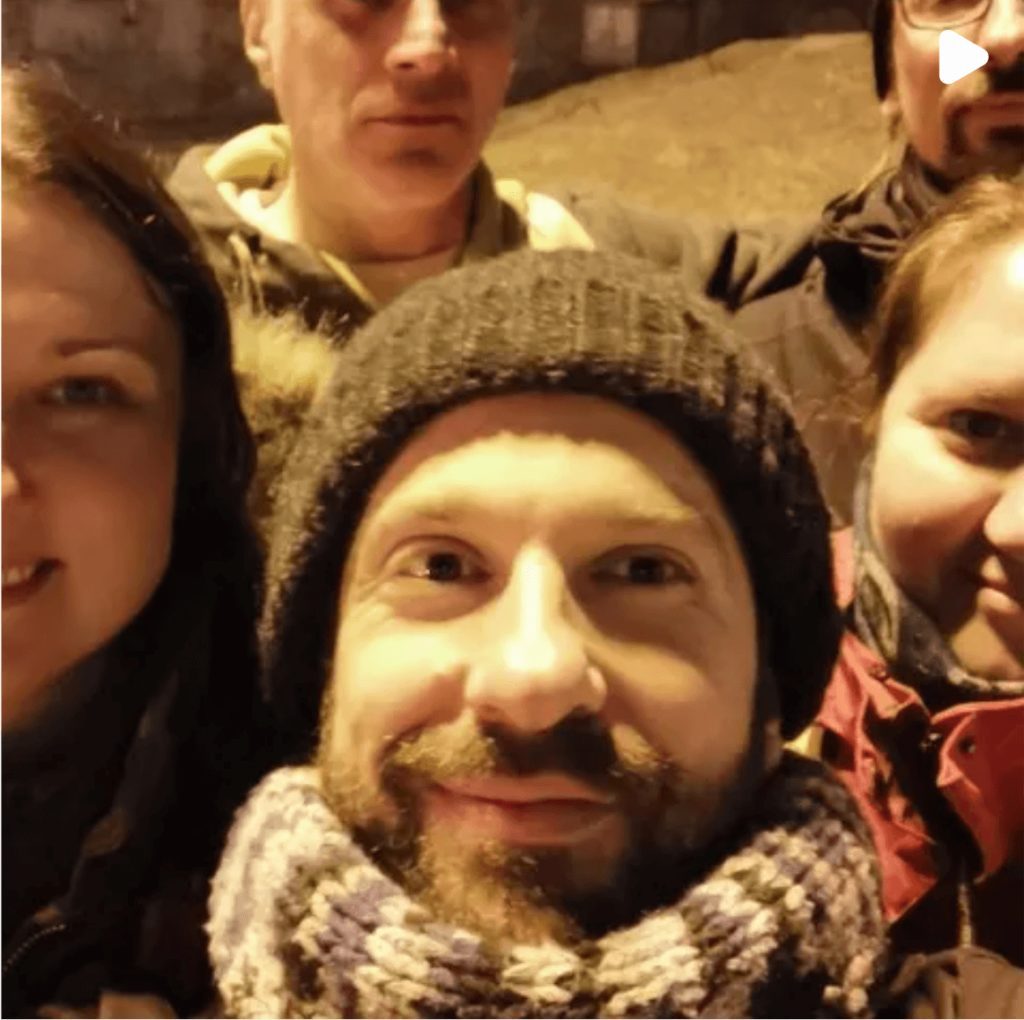
Not only are we collecting donations, but it is an amazing opportunity to support work on the ground as we face emergency situations. The donations actually help us create content now. So that’s pretty original.
And we’re creating this network that hopefully will become a very, very powerful global organization. And the idea is to become a founding member of this organization.
So it’s a funding campaign, but we are bringing on board people who recognize themselves in the work we do and the importance of shifting philanthropy from charity to justice.
To get a taste of what The Change Weavers are doing, check out Episode 1 of their new series, A Refugee is a Refugee. Meet Nosizo Zondo, who talks about her work against racism in Poland, which is of particular importance in these times of refugee crisis in the wake of the war in Ukraine. Full 50 minutes conversation video here:
To learn more about The Change Weavers, click HERE. To see their IndieGogo campaign, click HERE, and stay tuned to their social media posts on Facebook and Instagram.
Clement Guerra refugees The Change Weavers The Condor & the Eagle Ukraine